Surviving a road accident in South Africa is a life-altering event, but the
can offer the financial support you need.
To secure compensation, meticulous preparation and accurate information collection are essential.
Gathering the right details swiftly can make a significant difference in the strength of your personal injury claim, ensuring you receive fair compensation for your losses and damages.
This comprehensive guide will walk you through the crucial information needed to bolster your RAF claim, making the process as smooth and successful as possible.
The Value of Detailed Notes and Organized Documentation in Your RAF Claim
When you’re dealing with a Road Accident Fund (RAF) claim in South Africa, keeping thorough notes and organizing your documents is incredibly important.
Detailed notes act as a solid record of what happened during the accident and the period following it.
These notes capture the specific details like the time and place of the accident, details that might fade from memory over time.
They also help in charting your physical and emotional journey after the accident, giving a clear picture of how the accident affected your life.
This aspect is particularly crucial when you need to show the emotional and physical pain you’ve endured.

Keeping Track of your Claim
Organized documentation is equally essential, especially regarding your medical records. By keeping track of your medical treatments, symptoms, and recovery, you ensure that no aspect of your health is overlooked.
This is vital in proving the severity of your injuries and their direct link to the accident.
Furthermore, having all your medical bills and expense receipts in order is key to getting properly reimbursed. These financial records show the exact economic impact the accident has had on your life.
Having detailed notes and organized documentation also makes your claim stronger and more credible.
This consistency in your records adds weight to your story, making it hard for the RAF or anyone else to challenge your account of events.
If your claim goes to court, this detailed documentation can be a powerful tool for your lawyer, helping you get the compensation you deserve. Besides, when everything is neatly organized, it makes the whole claim process much smoother and quicker. It reduces the chances of any delays due to missing or unclear information.
In cases where there are disputes over the facts of the accident or the extent of your injuries, your well-kept records can be the deciding factor.
They serve as concrete evidence to support your side of the story.
The effort you put into diligently noting down every detail and keeping your documents organized can greatly impact the outcome of your RAF claim.
It not only bolsters your case but also streamlines the process, ensuring you get the rightful compensation for your ordeal.
There is a lot of information which you’ll need to source to support your RAF claim. From personal details to medical and police reports there’s a lot to keep track of. Below is a helpful list which you can use to start building your file.

Essential Information for Your Claim
Personal Details
Gather your full name, ID number, address, and contact details. You’ll also need the same information for any other people involved in the accident.
This could include drivers, passengers and pedestrians.
Accident Details
- Date and Time: Note the exact date and time of the accident.
- Location: Record the specific location where the accident occurred.
- Description: Write a clear description of how the accident happened.
Vehicle and Insurance Information
- Vehicle Details: Note the make, model, and registration number of all vehicles involved.
- Insurance Information: Collect the insurance details of all parties involved.
Witness Information
- If there were witnesses, get their names and contact details. Witness statements can be vital.
Medical and Financial Records
Medical Documentation
- Initial Medical Reports: Get a report from the first medical professional you consult.
- Follow-up Treatments: Keep records of any additional treatments or consultations.
Financial Impact
- Medical Expenses: Keep all receipts related to your medical treatment.
- Loss of Income: If you’ve missed work, document your lost income.
Police Report
- Obtaining a police report is crucial. Visit the police station nearest to the accident scene and request a copy of the accident report.
Photographic Evidence
Scene of the Accident
- Take photos of the accident scene, showing the road layout, traffic signs, and vehicle positions.
Injuries and Damages
- Photograph any injuries you sustained and damage to your vehicle.
Keeping a Personal Diary
Documenting Your Recovery
- Write about your recovery process, including physical and emotional challenges.
Lifestyle Changes
- Note any changes in your daily life or activities due to the accident.
We’ve created an easy-to-follow infographic summarizing the key steps and information needed for your RAF claim.
Download the PDF: Our Essential RAF Claim Preparation Checklist
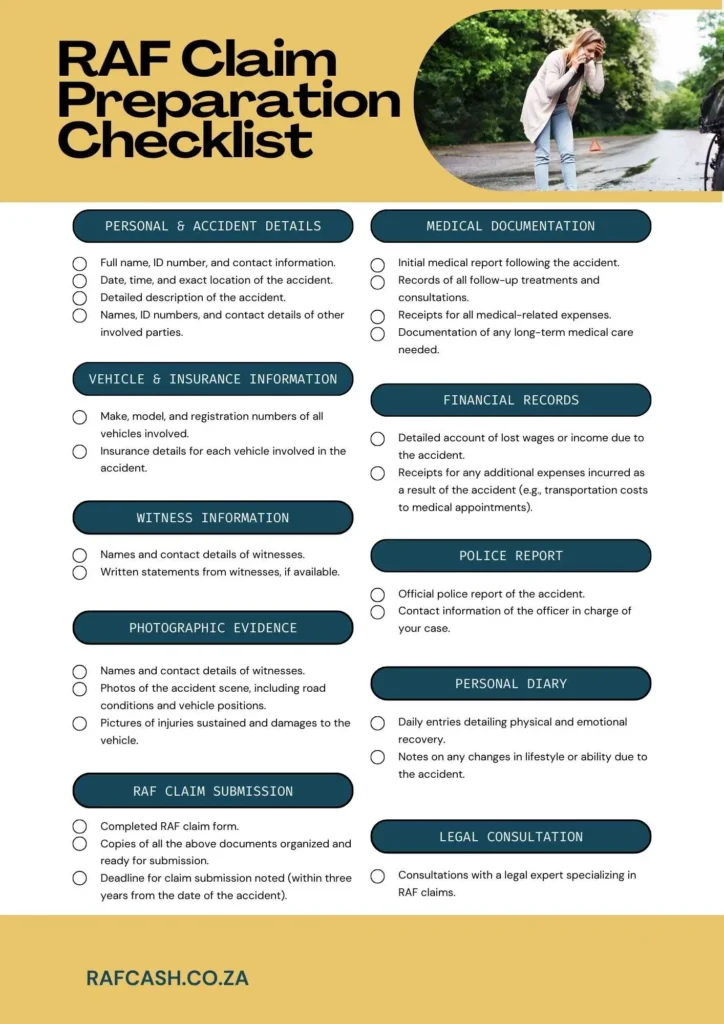
RAF Claim Preparation Checklist
Personal & Accident Details
- Personal Information: Full name, ID number, and contact information.
- Accident Details: Date, time, and exact location of the accident; detailed description of the accident.
- Involved Parties: Names, ID numbers, and contact details of other involved parties.
Vehicle & Insurance Information
- Vehicle Details: Make, model, and registration numbers of all vehicles involved.
- Insurance Information: Insurance details for each vehicle involved in the accident.
Medical Documentation
- Initial Report: Initial medical report following the accident.
- Follow-Up Treatments: Records of all follow-up treatments and consultations.
- Medical Expenses: Receipts for all medical-related expenses.
- Long-Term Care: Documentation of any long-term medical care needed.
Financial Records
- Lost Wages: Detailed account of lost wages or income due to the accident.
- Additional Expenses: Receipts for any additional expenses incurred as a result of the accident (e.g., transportation costs to medical appointments).
Police Report
- Report: Official police report of the accident.
- Officer Information: Contact information of the officer in charge of your case.
Witness Information
- Witnesses: Names and contact details of witnesses.
- Statements: Written statements from witnesses, if available.
Personal Diary
- Recovery Diary: Daily entries detailing physical and emotional recovery.
- Lifestyle Changes: Notes on any changes in lifestyle or ability due to the accident.
Photographic Evidence
- Accident Scene: Photos of the accident scene, including road conditions and vehicle positions.
- Injuries and Damages: Pictures of injuries sustained and damages to the vehicle.
RAF Claim Submission
- Claim Form: Completed RAF claim form.
- Document Copies: Copies of all the above documents organized and ready for submission.
- Submission Deadline: Deadline for claim submission noted (within three years from the date of the accident).
Legal Consultation
- Expert Advice: Consultations with a legal expert specializing in RAF claims.

Real-Life Examples
Personal Narratives
Sarah M’s Recovery Journey
Sarah M. (names in this article have been changed to keep those involved anonymous), a 28-year-old teacher from Durban, was involved in a severe car accident that left her with multiple fractures.
Despite the pain and challenges, she meticulously documented her recovery.
Sarah kept a detailed diary of her daily pain levels, medical appointments, and emotional struggles.
Her strategy of thorough documentation paid off when her lawyer used this evidence to secure a R2.8 million settlement.

Johan D’s Legal Victory
Johan D., a 45-year-old construction worker from Cape Town, faced significant financial hardship after a hit-and-run accident left him unable to work.
With his lawyer’s guidance, Johan compiled a comprehensive file, including witness statements, police reports, and medical records.
His detailed documentation and his attorney’s strategic approach led to a successful R3.2 million claim.

Thandi L’s Organizational Success
Thandi L., a 32-year-old business analyst from Bloemfontein, was rear-ended by a drunk driver, resulting in significant neck and back injuries.
Following advice from her sister, who had previously filed an RAF claim, Thandi created an organized binder with a timeline of the accident, detailed medical records, and a daily journal of her pain and recovery process.
This well-organized information helped her lawyer build a strong case, resulting in a R4 million settlement.

Quotes and Interviews
Legal Expert Advice “Always request a copy of the police report and follow up to ensure it is accurate. Inaccurate reports can delay the claims process.” — J.S. , Personal Injury Lawyer
Medical Professional Insight “Keep all medical records, including prescriptions and treatment plans. Detailed medical documentation is crucial for proving the extent of your injuries.” — Dr. M.B. , Orthopedic Specialist
Past Claimant Experience “Photograph everything—your injuries, the accident scene, and any damage to your vehicle. Visual evidence can be incredibly persuasive.” — D.K., Former RAF Claimant
By sharing these real-life examples, quotes, and professional insights, the article can provide valuable, relatable information that illustrates the importance of preparation and thorough documentation in the RAF claim process.

Case Study: Mary P’s Successful RAF Journey
Mary P, a 35-year-old woman from Johannesburg, faced a life-changing moment when she was involved in a serious car accident. The crash left her with severe back pain. This led to a long and challenging medical recovery.
The Accident and Its Aftermath
On a rainy evening, Mary’s car was hit from the side by a speeding driver, causing her vehicle to spin out of control. The impact severely injured her back.
Over the next several months, Mary underwent multiple treatments, including surgery and physiotherapy, to alleviate her pain and regain mobility.
Mary’s Organized Approach
Lucky for Mary, she had a sister who was involved in a RAF claim 5 years prior. She made Mary aware of the importance of keeping accurate records.
At her sister’s advice, Mary opened an arch lever file from the day of the accident. This file became her central repository for all accident-related documents and information. It included:
- The police report and photographs from the accident scene.
- Detailed medical records and receipts for her treatments.
- A personal journal where she documented her daily pain levels, emotional state, and how the injury affected her life.
Building a Strong Case
When Mary decided to file a claim with the Road Accident Fund (RAF), she turned to an attorney for assistance.
Her attorney was impressed by the level of detail and organization in her file.
Using the information Mary had collected, the attorney was able to piece together a clear and cohesive story of the accident and its impact on Mary’s life.
The Outcome
In court, the evidence from Mary’s file was presented compellingly. The judge was particularly moved by her journal entries, which vividly described her physical and emotional struggles.
The detailed records and chronological narrative were instrumental in proving the extent of her suffering and financial losses.
Thanks to her diligence in record-keeping and the skillful presentation by her attorney, Mary was awarded a R3.65 million claim.
Mary’s story is a testament to how thorough preparation can lead to a just and fair resolution in an RAF claim.
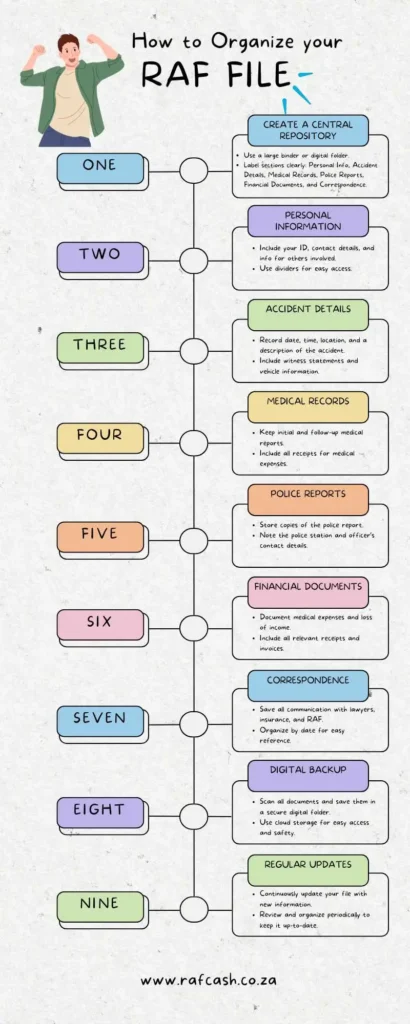
Practical Tips
Efficient Document Gathering and Storage
-
Create a System
- Use both physical and digital storage. For physical documents, use a binder with labeled sections. For digital copies, create folders in cloud storage.
-
Keep Everything
- Save all receipts, reports, and correspondence. You never know what might be crucial.
-
Regular Updates
- Update your file regularly. New medical reports or communications should be added promptly.
Dealing with Common Challenges
-
Obtaining Police Reports
- Visit the police station where the report was filed. Request a copy and keep the officer’s contact details for follow-ups.
-
Getting Medical Records
- Request copies of all medical reports from your healthcare providers. Keep a record of all treatments and medications.
-
Witness Information
- Collect contact details and statements from any witnesses as soon as possible.
-
Photographic Evidence
- Take photos of injuries, vehicle damage, and the accident scene. Store these digitally with backup copies.
-
Legal Assistance
- Consult with an attorney for advice on what documents are critical and how to obtain them efficiently.
By following these practical tips, you can ensure that your RAF claim file is comprehensive, well-organized, and ready to support your case effectively.

Emotional Well-Being and Coping Strategies
The claims process can be stressful. Maintaining a personal diary helps manage this stress by giving you a space to express your feelings and track your healing. Additionally, consider the following tips:
- Seek Support: Talk to friends, family, or a counselor.
- Stay Organized: Keeping documents orderly can reduce anxiety.
- Practice Self-Care: Engage in activities that promote relaxation and well-being.
Remember, your emotional health is just as important as your physical recovery.
Taking care of yourself can make the claims process more manageable and improve your overall well-being.
Motor Vehicle Injury Personal Diary
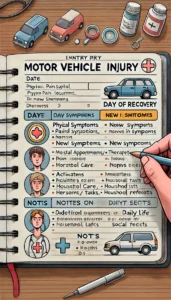
Download an abridged version of our Motor Vehicle Injury Personal Diary.
Introducing the RAF Claim Preparedness Quiz
Are you ready to file your Road Accident Fund (RAF) claim? Our RAF Claim Preparedness Quiz is designed to help you assess your readiness and identify any areas that may need more attention.
By answering a few simple questions, you can gauge how prepared you are to file your claim and ensure you have all the necessary information and documentation.
Benefits
- Assess Your Readiness: Determine if you have all the essential documents and information for a strong RAF claim.
- Identify Weaknesses: Discover areas where you might need to gather more information or seek additional support.
- Plan Ahead: Use the quiz results to create a checklist and plan your next steps.
How to Use the Quiz
- Answer each of the ten questions honestly.
- Review your results to understand your level of preparedness.
- Follow the suggestions provided based on your answers to improve your readiness.
How It Works
- Answer the ten questions about your claim preparation.
- Submit your responses to receive immediate feedback.
- Use the feedback to identify areas that need more attention and ensure your claim is as strong as possible.
RAF Claim Preparedness Quiz
1. Do you have your full name, ID number, address, and contact details ready?
YesNo
2. Have you documented the date, time, location, and a detailed description of the accident?
YesNo
3. Do you have the make, model, and registration numbers of all vehicles involved, along with insurance details?
YesNo
4. Have you collected the names and contact details of any witnesses, and obtained their statements if possible?
YesNo
5. Do you have the initial medical report, follow-up treatment records, and receipts for all medical expenses?
YesNo
6. Have you documented lost wages or income and kept receipts for additional expenses incurred due to the accident?
YesNo
7. Do you have a copy of the official police report and contact information of the officer in charge?
YesNo
8. Have you taken photos of the accident scene, injuries, and vehicle damages?
YesNo
9. Are you maintaining a diary with daily entries detailing your physical and emotional recovery?
YesNo
10. Have you consulted with a legal expert specializing in RAF claims?
YesNo
Disclaimer: This quiz is for informational purposes only and does not constitute legal or professional advice. It is designed to give you an indication of where weaknesses may lie in your RAF claim preparation. For personalized advice, please consult a legal expert.
Did you know...
- Comprehensive Documentation: Thorough and organized documentation significantly strengthens your RAF claim, making it harder for anyone to challenge your account.
- Personal Diary Impact: Keeping a detailed personal diary can provide compelling evidence of your physical and emotional recovery, greatly influencing the outcome of your claim.
- Photographic Evidence: Photos of the accident scene, injuries, and vehicle damage serve as powerful visual proof to support your claim.
- Lost Wages Documentation: Accurately documenting lost wages due to the accident can help ensure you are compensated for income lost during recovery.
- Police Report Importance: An official police report is crucial for your RAF claim, as it provides an authoritative account of the accident.
- Witness Statements: Gathering statements from witnesses can be vital in corroborating your version of events.
- Medical Records: Detailed medical records, including initial reports and follow-up treatments, are essential in proving the extent and impact of your injuries.
- Legal Consultation Benefits: Consulting with a legal expert specializing in RAF claims can significantly enhance your chances of a successful outcome.
- Deadline Awareness: It’s crucial to note the deadline for claim submission, which is within three years from the date of the accident.
- Organized File: An organized file with all relevant documents not only strengthens your claim but also streamlines the entire process, reducing delays.
Conclusion
Preparing a Road Accident Fund (RAF) claim may seem daunting. But with the right approach and organization, it becomes manageable.
Remember, the strength of your claim largely depends on the accuracy and completeness of the information you provide.
The process of collecting and organizing this information not only prepares you for a successful claim but also helps you to understand and articulate the full extent of the impact the accident has had on your life. This preparation not only aids in the legal process but also contributes to your personal journey of recovery and closure.
Therefore, take the first step today. Begin compiling your documents, take detailed notes, and if necessary, seek legal advice to guide you through the process. Your proactive approach will make a significant difference in the outcome of your claim.
Don’t let the complexity of the process deter you from claiming what you rightfully deserve. Use this guide and checklist as your roadmap, and take control of your RAF claim. Your diligence and attention to detail can lead to a more favorable outcome and a smoother path to recovery and compensation.
Your future self will thank you!
Frequently Asked Questions
What is a Road Accident Fund (RAF) Claim?
A RAF claim is a request for compensation from South Africa’s Road Accident Fund for injuries or losses suffered in a road accident.
Who Can File a RAF Claim?
Any road user injured in a South African road accident, including drivers, passengers, cyclists, and pedestrians, can file a claim with the RAF.
What Information Do I Need for a RAF Claim?
You need your personal details, accident details, vehicle and insurance information, witness information, medical and financial records, police report, photographic evidence, and a personal diary of your recovery.
Why Is Keeping a Personal Diary Important for a RAF Claim?
A personal diary helps document your daily physical and emotional state post-accident, providing a detailed account of your recovery and the accident’s impact on your life.
How Long Do I Have to File a RAF Claim?
You have three years from the date of the accident to file a RAF claim.
Can I File a RAF Claim Without an Attorney?
Yes, you can file a RAF claim on your own, but consulting an attorney is advisable for legal guidance and to strengthen your claim.
What Should I Do If I Lose My Job Due to the Accident?
Document your lost income or wages as part of your financial records, as this can be claimed from the RAF for compensation.
How Do I Prove the Extent of My Injuries for the Claim?
Keep detailed medical records, including initial reports, follow-up treatments, and receipts of medical expenses, to prove the extent of your injuries.
What Happens If the RAF Disputes My Claim?
If the RAF disputes your claim, your detailed notes, documentation, and legal representation can help resolve the dispute and support your case.
Can I Claim for Emotional Trauma in a RAF Claim?
Yes, you can claim for emotional trauma. Documenting your emotional and mental health in a personal diary following the accident is crucial for this part of the claim.
Glossary
- Claimant: The person who files a claim seeking compensation.
- Compensation: Money awarded to someone as a recompense for loss, injury, or suffering.
- Documentation: Official papers that provide information or evidence.
- Initial Medical Report: The first medical examination report after an accident.
- Follow-Up Treatments: Subsequent medical treatments and check-ups after the initial report.
- Medical Expenses: Costs incurred for medical treatment.
- Lost Wages: Income lost due to inability to work after an accident.
- Police Report: Official record of the accident filed by the police.
- Witness Statements: Accounts of the accident provided by people who saw it happen.
- Photographic Evidence: Photos taken to document the accident scene and injuries.
- Personal Diary: Daily journal detailing the claimant’s physical and emotional recovery.
- Legal Consultation: Meeting with a lawyer to seek legal advice and assistance.
- Insurance Details: Information about the insurance policies of the vehicles involved in the accident.
- Physical Symptoms: Signs and feelings indicating injury or illness.
- Emotional Well-Being: A person’s emotional health and how they handle stress.
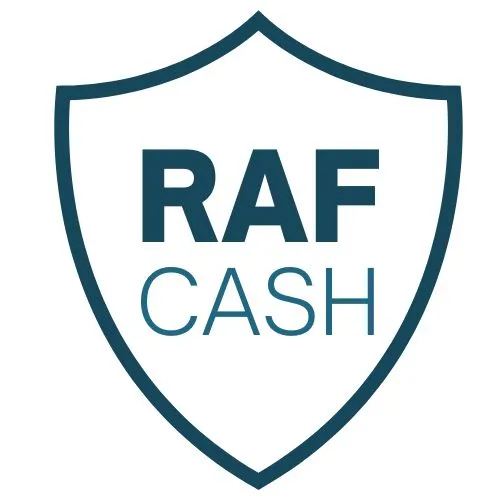
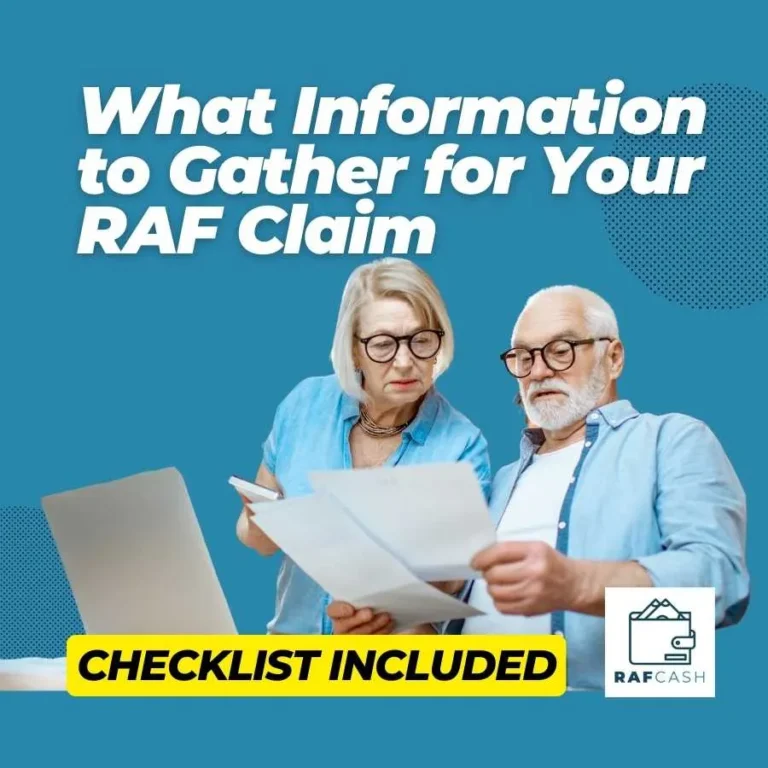
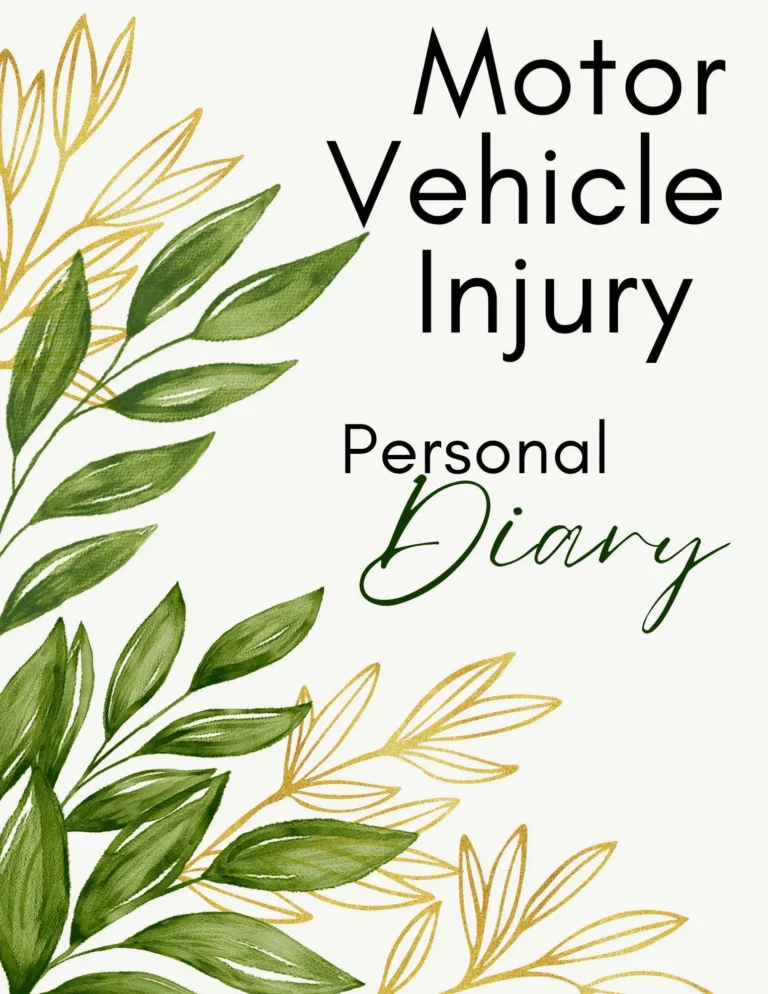
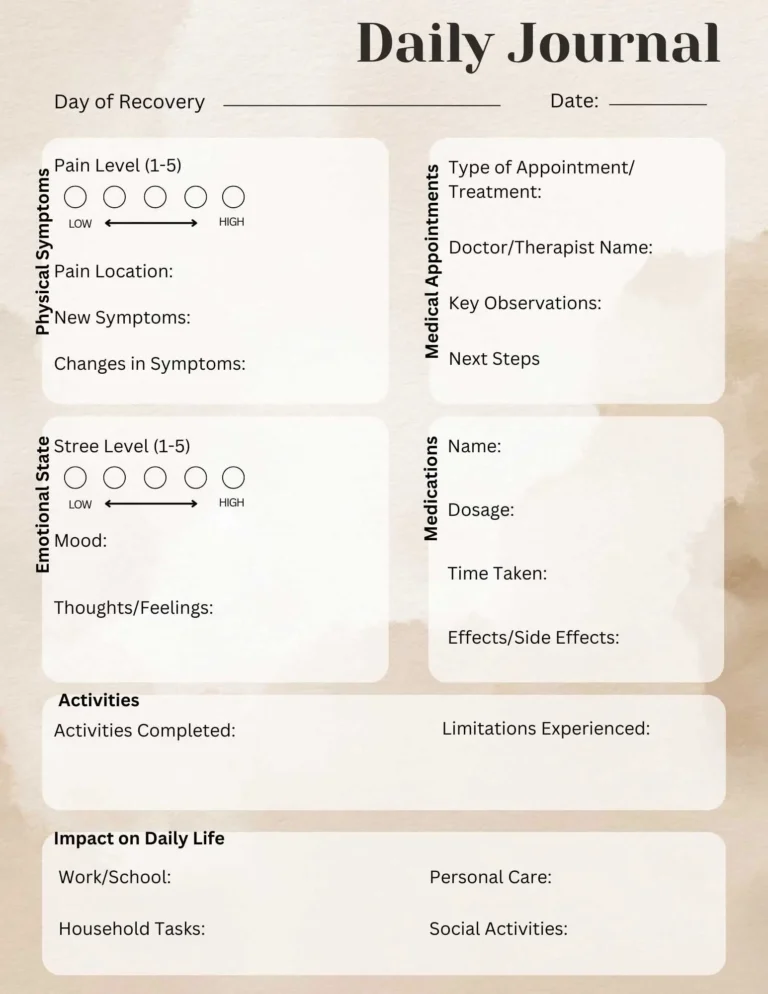
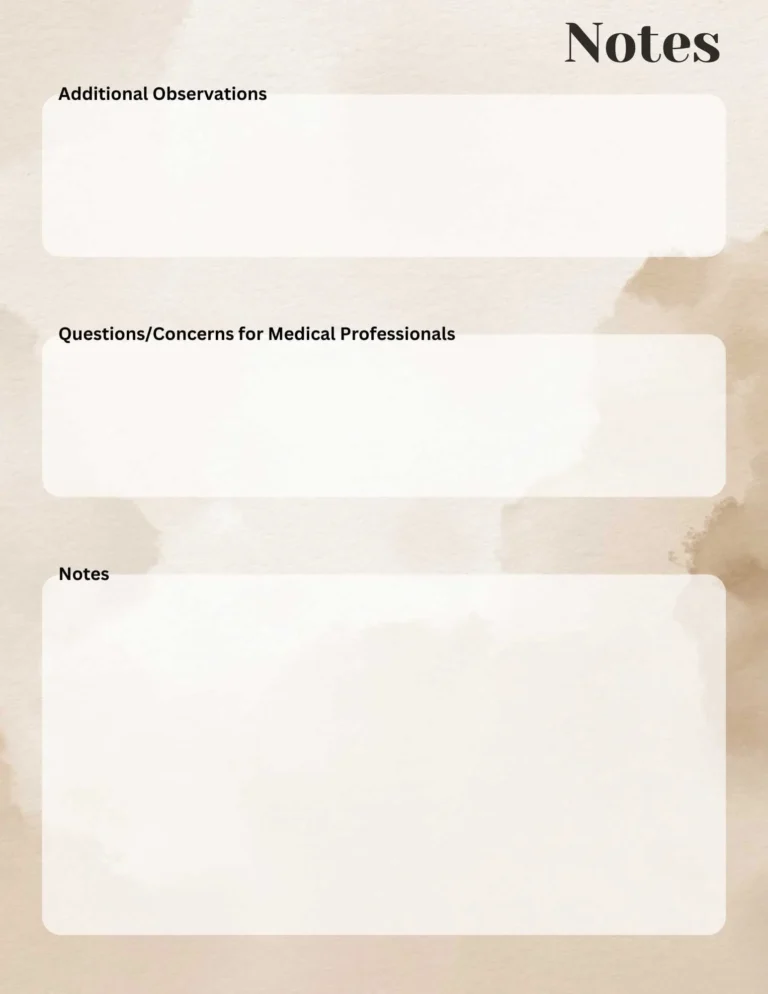


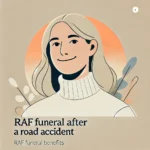
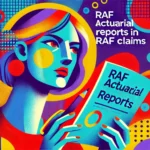

2 Responses
Hi i was just request to raf about claim; because my lawyers agreement for claim was 8 years jam on nine years now. They say they still did not have raf offer I don’t is their delay or is raf process to be that long because they went to court in 2023 26 October and 2024 there’s no progress in my case can you update me with if possible? Thank you. Jam Simon bhutitjie masilela id.number 8204035982081place of accident R37 lydenburg road contact no 0798423199
I’ve never here anything from u since 2021 August to September today’ it’s 03 November 2024 I dnt know it’s delayed or there’s nothing under my name place of accident R536 mkhuhlu 1246
Name Arnold
Surname mknasi
ID. 9601296015080
Contact no. 0722469679